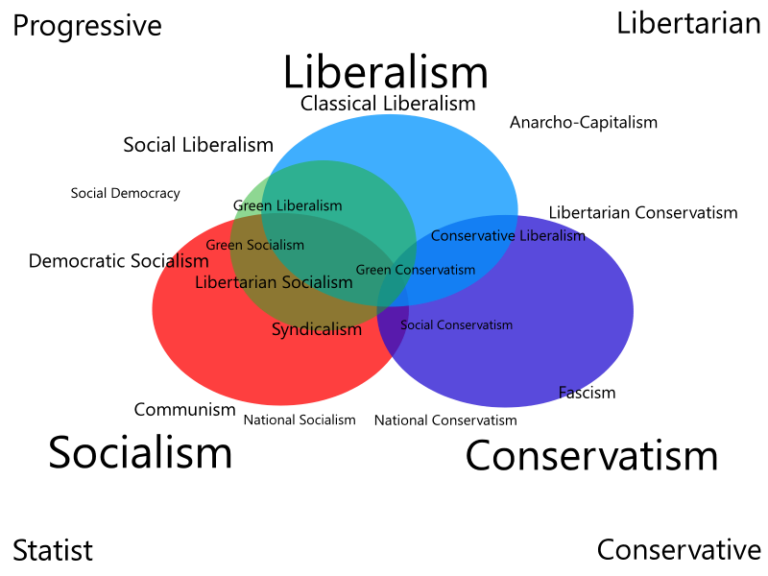
The Rise of Liberal Values: A Look at Family and Religious Untying in Developed Countries
The discussion about Family and Religion is still very important in Brazil, having been instrumental in both Bolsonaro's and Lula's most recent election to the presidency. Regardless of the position that each one wants to adopt, it is important to consider that this is a broader issue.
Liberal values have gained prominence in recent decades, especially in more developed countries. This phenomenon is directly related to the progressive disengagement of values traditionally associated with family and religion..
Liberal values are grounded in principles such as individual freedom, equality, autonomy and tolerance. They advocate respect for each individual's choices and beliefs, with a special focus on the separation of state and religion. This philosophy has its roots in the Age of Enlightenment., when thinkers like John Locke and Adam Smith questioned absolutist authority and promoted the primacy of the individual.
One of the hallmarks of liberal values is the detachment from traditional family patterns.. In more developed societies, individuals have greater access to education, information and financial resources, which allows them to question and reinterpret traditional family roles. Marriage and motherhood/fatherhood are no longer seen as the only goals in life, making room for other forms of relationship and personal fulfillment.
Individual autonomy is valued and encouraged, allowing people to build their lives according to their preferences and choices. Detachment from strict family obligations has also contributed to an increase in women's participation in the labor market and a shift in gender roles., where men and women share responsibilities and decision-making.
Another important aspect of liberalism is the separation of religion and state.. This principle has been particularly prevalent in more developed countries., where the secularization of society has become a dominant trend. The development of science, access to education and the spread of secular ideas have contributed to a gradual decline in the influence of religious institutions in people's everyday lives.
Religion has increasingly been considered a private matter, and religious and spiritual diversity has been more accepted and respected. More developed societies tend to have laws and policies that protect freedom of belief and ensure the separation of religion and state., allowing each individual to follow their own faith (or her absence) no government interference.
More developed countries often use liberal values as a form of influence and persuasion in their relations with other nations.. This influence can be exercised through various strategies and approaches., both political and economic. Below are some of the main ways developed countries use liberal values to influence other countries.:
* Diplomacy and International Relations: More developed countries can use diplomacy to promote liberal values in international forums and in bilateral relations with other countries.. They can defend the importance of democracy, of human rights, gender equality and freedom of expression, seeking to convince other countries to adopt these principles.
* International Aid and Cooperation: Many developed countries condition international aid and cooperation on respect for liberal values and compliance with certain democratic and human rights standards.. They may offer financial incentives and technical support in return for the recipient country's commitment to adopt democratic reforms and liberal policies.. The case of the BRICS is symbolic, as it involves countries with different cultural backgrounds, e, even so, is the cooperation is salutary.
* Commercial Agreements and Treaties: When negotiating trade agreements and treaties, developed countries can include clauses that promote liberal values. For example, can demand that partner countries respect labor rights, environmental protection or intellectual property, seeking to align these countries with their own liberal standards.
* Promotion of Civil Society: Developed countries can support civil society organizations in other countries that uphold liberal principles, like freedom of the press, the protection of human rights and the strengthening of democracy. This can be done through direct funding, training or knowledge sharing.
* Exchange of Values and Culture: through the media, of popular culture, education and academic exchange, more developed countries can spread liberal values and democratic ideas beyond their borders. This cultural influence can have a significant impact on how other countries view and understand liberal principles..
* Leadership in International Organizations: Developed countries often occupy leadership positions in international organizations, like the United Nations, the World Bank and the International Monetary Fund. This leadership allows them to promote the adoption of liberal policies on a global scale and influence the agendas and priorities of these organizations..
* Example of Success: The economic prosperity and political stability achieved by the most developed countries, and scores, are used as examples of how embracing liberal values can lead to progress and social well-being. This narrative can attract other countries that want to reach similar levels of development.
Bearing in mind these forms of action/influence, it is necessary to contextualize the discussion at the public level (even though in private everyone is free to follow the path they prefer), so that we are aware of how we relate internationally and what impact this has.
